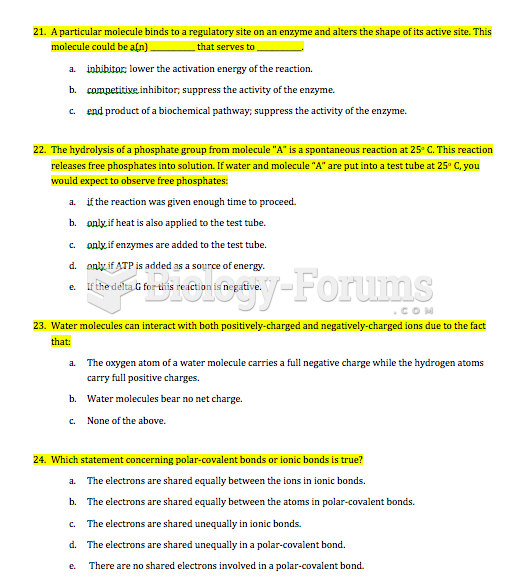Answer to Question 1
Answer: A
Explanation: A) Employers expect serious candidates to demonstrate an understanding of the company's operations, its markets, and its strategic and tactical challenges. Making this effort demonstrates your interest in the company, and it identifies you as a business professional who knows the importance of investigation and analysis.
Answer to Question 2
Answer: In an effort to improve the predictability of the selection process, many employers now conduct a variety of pre-employment evaluations and investigations. Pre-employment assessments are a complex and controversial aspect of workforce recruiting. For instance, even though personality testing is widely used, some research suggests that commonly used tests are not a reliable predictor of job success. Integrity tests attempt to measure how truthful and trustworthy a candidate is likely to be. Personality tests are designed to gauge such aspects as attitudes toward work, interests, managerial potential, dependability, commitment, and motivation. Cognitive tests measure a variety of attributes involved in acquiring, processing, analyzing, using, and remembering information. Typical tests involve reading comprehension, mathematics, problem solving, and decision making. You may be asked to take a reading or writing test. Job knowledge and job skills tests measure the knowledge and skills required to succeed in a particular position. A majority of companies perform some level of drug and alcohol testing. Many employers believe such testing is necessary to maintain workplace safety, ensure productivity, and protect companies from lawsuits, but others view it as an invasion of employee privacy. In addition to testing, most companies conduct some sort of background check, including reviewing your credit record, checking to see whether you have a criminal history, and verifying your education. Moreover, you should assume that every employer will conduct a general online search on you.







